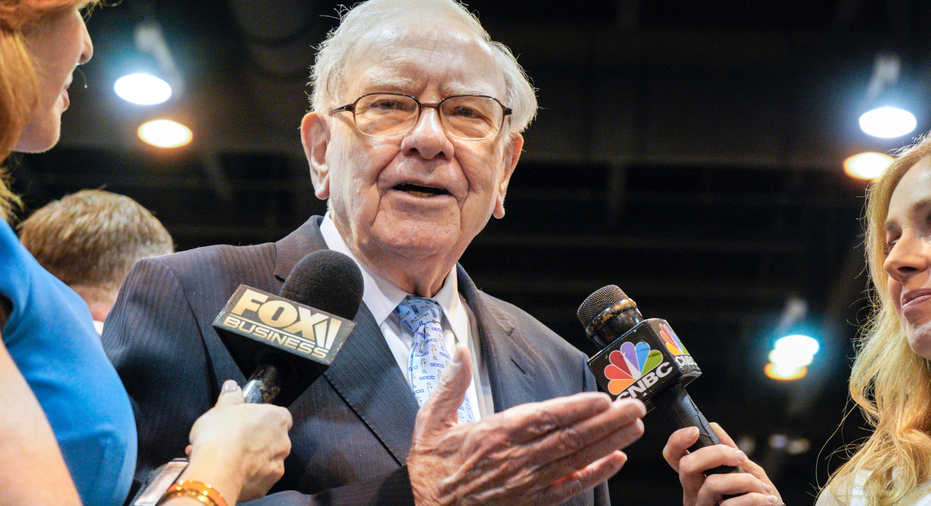Warren Buffett deflects questions about a successor

OMAHA, Neb. – Billionaire Warren Buffett deflected questions about his eventual successor at Berkshire Hathaway on Saturday, and encouraged the thousands of people at his annual meeting to focus more on big picture investing principles than day-to-day events.
The shareholder meeting celebrates the successes of the conglomerate that Buffett built with Berkshire Vice Chairman Charlie Munger while offering a chance to learn from the two accomplished businessmen.
Buffett doesn't plan to retire, even though he's 87 years old, but he invited more questions about his eventual successor earlier this year when he promoted Greg Abel and Ajit Jain to vice chairmen and expanded their responsibilities. Both men now oversee about half of Berkshire's operating companies.
Buffett and Munger both said little has changed because Berkshire's businesses largely run themselves day-to-day. Buffett said he still spends most of his time reading about businesses, thinking and fielding the occasional phone call.
"Part of the Berkshire secret is that when there is nothing to do, Warren is very good at doing nothing," Munger said.
Dairy Queen CEO Troy Bader was promoted to lead the restaurant chain this year, and he said Berkshire's overall philosophy hasn't changed just because Buffett isn't directly overseeing the companies now.
"Warren preaches that we should manage it as if it's our own business and protect reputation," Bader said.
Many shareholders say they trust that Buffett has a solid succession plan in place.
"He's done a phenomenal job for his shareholders," said Gary Gocken, of Lincoln. "I think they've got it all taken care of as far as what will happen when they eventually retire or move on."
Longtime Berkshire board member Ron Olson told Yahoo Finance he thinks the new roles for Abel and Jain will take some pressure off of Buffett and make it easier for him to continue running Berkshire, which includes an eclectic mix of more than 90 companies.
Berkshire investors are also eager to see how Buffett might spend the company's $116 billion in cash and short-term investments. Buffett reiterated Saturday that he thinks shareholders will be better off if that cash is reinvested in the business, not used for dividends.
Buffett encouraged everyone in the crowd to make long-term investments without worrying about headlines, such as trade disputes, Federal Reserve actions or the economy.
"The overriding question is: How is American business going to do in your lifetime?" Buffett said.
Berkshire Hathaway owns 10 percent of Wells Fargo's stock, and Buffett reiterated his support for the bank Saturday despite its recent scandals.
Buffett said Wells Fargo appears to have learned a valuable lesson from the scandals and that he thinks it's likely to avoid future problems. Wells Fargo had been trying to repair its reputation after admitting in 2016 that employees opened as many as 2 million accounts without getting customers' permission to meet aggressive sales targets.
"I have no reason to think that Wells Fargo, going forward will be anything other than a large, well-run bank," Buffett said.
The questions at the meeting always include a few focused more on life lessons than investing. Here are a few of the lessons Buffett and Munger offered:
— "If you're going to live a long time, you're going to have to continue learning," Munger said.
— "We're going to make mistakes. The most important thing is that we do something about it," Buffett said.
— "We'd do a lot better in all of our stockpicking if we did it in retrospect," Munger said.
Berkshire Hathaway Inc. owns railroad, clothing, furniture and jewelry firms. Its insurance and utility businesses typically account for more than half of the company's net income. The company also has major investments in such companies as American Express, IBM and Wells Fargo & Co.
___
Follow Josh Funk on Twitter at https://twitter.com/funkwrite



















